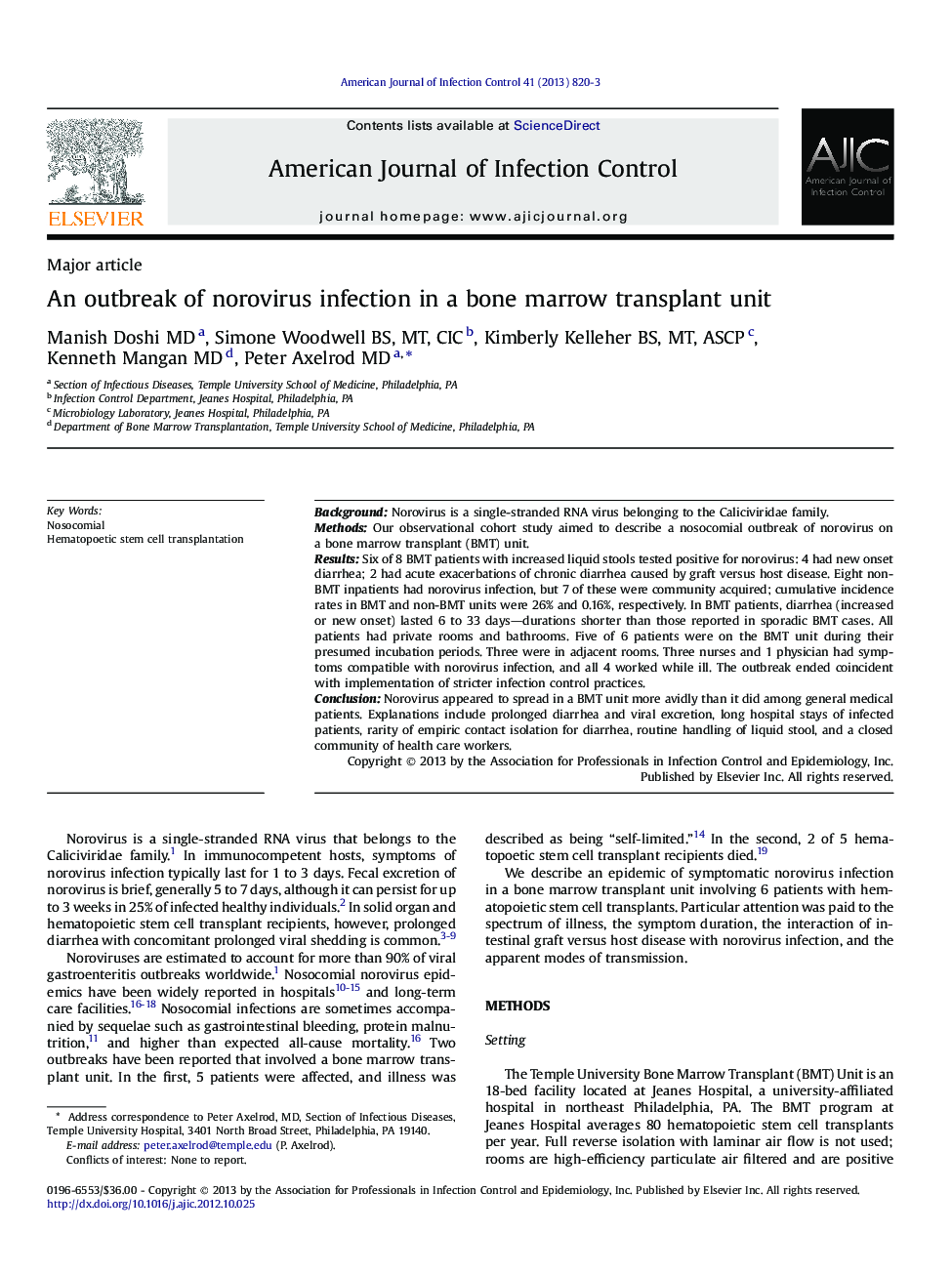| Article ID | Journal | Published Year | Pages | File Type |
|---|---|---|---|---|
| 2637376 | American Journal of Infection Control | 2013 | 4 Pages |
BackgroundNorovirus is a single-stranded RNA virus belonging to the Caliciviridae family.MethodsOur observational cohort study aimed to describe a nosocomial outbreak of norovirus on a bone marrow transplant (BMT) unit.ResultsSix of 8 BMT patients with increased liquid stools tested positive for norovirus: 4 had new onset diarrhea; 2 had acute exacerbations of chronic diarrhea caused by graft versus host disease. Eight non-BMT inpatients had norovirus infection, but 7 of these were community acquired; cumulative incidence rates in BMT and non-BMT units were 26% and 0.16%, respectively. In BMT patients, diarrhea (increased or new onset) lasted 6 to 33 days—durations shorter than those reported in sporadic BMT cases. All patients had private rooms and bathrooms. Five of 6 patients were on the BMT unit during their presumed incubation periods. Three were in adjacent rooms. Three nurses and 1 physician had symptoms compatible with norovirus infection, and all 4 worked while ill. The outbreak ended coincident with implementation of stricter infection control practices.ConclusionNorovirus appeared to spread in a BMT unit more avidly than it did among general medical patients. Explanations include prolonged diarrhea and viral excretion, long hospital stays of infected patients, rarity of empiric contact isolation for diarrhea, routine handling of liquid stool, and a closed community of health care workers.
